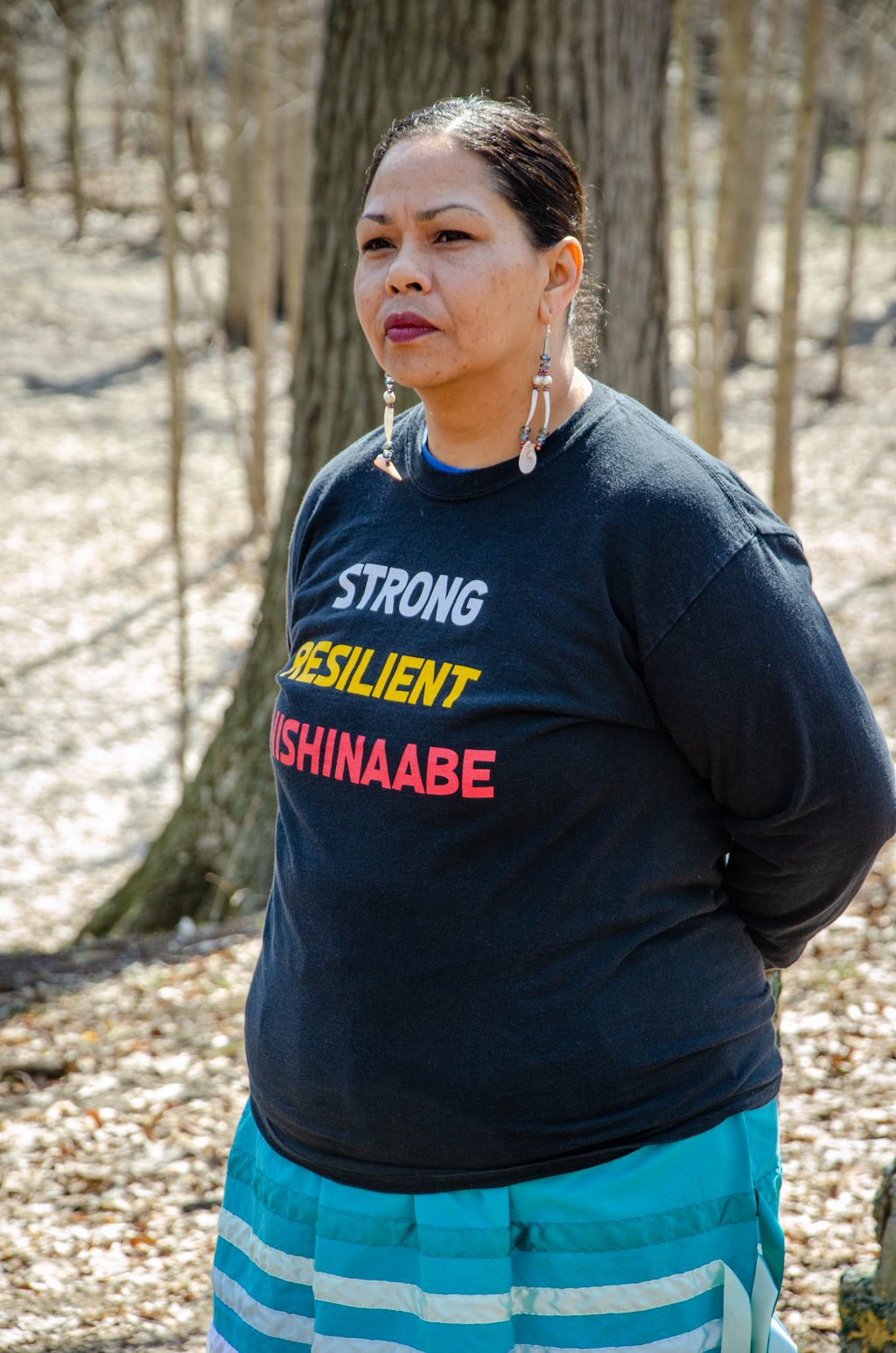How we can respectfully bring visibility to today’s Indigenous communities
Kevin Leonard, interim director of the MSU Native American Institute, joins CultureShift to discuss land acknowledgements, what not to say and how to do your own research on Indigenous culture.

Sonja Ballew in the Rouge Park Sugarbush
What do you know about the land that you’re currently standing on? Its history, its past, its present and the people who occupied it first?
Kevin Leonard is the interim director of the Michigan State University Native American Institute. Through his 20-year tenure at MSU, Leonard has built relationships with tribal communities to encourage and increase the number of Native American applicants at the school. He’s also a proud member of the Sault Ste. Marie Tribe of Chippewa Indians, part of the Three Fire Confederacy.
Leonard spoke with CultureShift about bringing visibility to Indigenous communities in today’s climate. He says if there are things you simply don’t know, just ask.
“Do some of that research. Before you go on, ask. It just shows us that you are really committed and interested in learning more and not just asking because you don’t have the initiative and go look it up yourself.”
In 2020, Wayne State University — where WDET calls home — joined a host of schools across the state who have land acknowledgments. WSU’s statement reads as follows:
Wayne State University rests on Waawiyaataanong, also referred to as Detroit, the ancestral and contemporary homeland of the Three Fires Confederacy. These sovereign lands were granted by the Ojibwe, Odawa, Potawatomi and Wyandot nations, in 1807, through the Treaty of Detroit. Wayne State University affirms Indigenous sovereignty and honors all tribes with a connection to Detroit. With our Native neighbors, WSU can advance educational equity and promote a better future for the earth and all people.
Organizations often read land acknowledgments at the beginning of public gatherings and include them in published materials as a way to honor the Indigenous peoples who originally occupied the land the organization resides on now. While the intention is to further diversity, equity and inclusion, some people feel that land acknowledgments are an empty gesture to a community that has endured atrocities.
Leonard says there needs to be action that supports the messaging in order for there to be meaningful change.
“There’s a deep need for many in our community to sustain our language and sustain our culture, sustain the foods that many in the world have come to take for granted that these were foods that they’ve always had, but they weren’t. They were foods that originated here out of the North and South American continents that were cultivated for thousands of years by the Indigenous people.”
“We’re more than what most people understand us to be.”
Leonard believes it’s important for people to know that Indigenous people are more than an artifact of the past.
“We’re more than probably what most people understand us to be. We’re everywhere around you, and we look all different ways. My son is red-haired, brown-eyed, but I have cousins who are blonde-haired and blue-eyed.”
Over the last decade, we’ve seen several sports teams and brands moving away from mascots that appropriated Indigenous cultures. But what can the average non-Indigenous person do to help correct the wrongs of the past?
Leonard encourages having an open mind and heart.
“We would really like your help, because we aren’t necessarily all honored by these mascots. Learning about the history of this area and the role that the native people played is important as well.”
To learn more about land acknowledgments and how to support Indigenous communities, you can head to Michigan State’s American Indian and Indigenous studies page, Wayne State’s Office of Multicultural Engagement page or the Native Governance Center.
Support the shows you love.
WDET’s unique music programs are dedicated to exploring the music and culture of our region and the world.
Keep the culture going. Please make a gift today.
